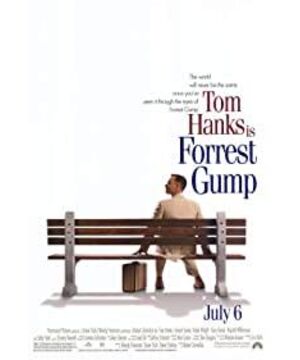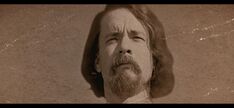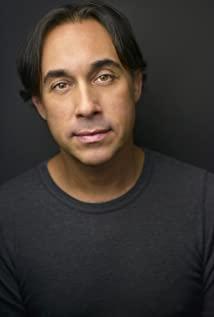Forrest Gump is my favorite movie. I was attracted the first time I saw it. Not only the story, narrative skills, but also the sense of destiny inside. But after reading it many times, the more I look at it, the more I feel... I can’t tell.
Li Yang said, “Ideological criticism of movies is always easy and popular” (I can’t remember the original words, but "Watching Movies" not around). But for Forrest Gump, a film that is deeply immersed in American spirit, how can you interpret it if you don't watch it from a culturally critical perspective?
Dai Jinhua wrote about Forrest Gump in one chapter in her "Film Criticism". In short, this movie is a "rewritten" history. For those who do not understand American history, watching this movie can be said to be a microcosm of American history. The sense of history they have experienced is a manifestation of the American spirit of the 20th century. Many people like it not only because of Forrest Gump's ups and downs, but also because the fate of such a small person is combined with the background of the big era. But it is precisely this historical background that is absent on some important occasions. For example, the civil rights movement and the women's liberation movement that swept across the United States from the 1960s to the 1970s have lost their traces here. Whether it is Martin Luther King or Malcom X, their influence has been obscured. Although the film focused on presenting the youth anti-war movement, it did not mention other political activities with more far-reaching influence. The Summer of Freedom, the election registration movement, the Birmingham bus address movement... these are all invisible in the film.
What the movie presents to us is a certain historical "fragment" after being adapted and carefully selected-that is, a history that conforms to the aesthetic appeal of mainstream media. Racial issues and women’s discrimination, issues that have not yet been resolved, should not appear on the table because they do not conform to moral judgments. But the criticism of the war is okay, because the war has passed, no matter how you belittle, no one will jump out and argue with you.
Another point that is very obvious is the stereotype of black roles. The black characters appearing in the film are either the target (racial reconciliation) or the brutal Panthers. This one-sided division is also to please the mainstream white society. In other words, it extols the American dream: As long as the individual works hard, the future must be good. The injustice of the system was not mentioned at all.
The significance of Forrest lies in embedding a small figure in the long river of history, and it also makes people feel so natural. But in such an artificial process, the creators cleverly and consciously ignored some "details", which made history present a completely different appearance.
What I want to say is not a critique of film narrative techniques. In this regard, you can refer to Dai Jinhua's article. She wrote much better than me. What I am interested in is, as the audience of the movie, what is the audience's feelings under this subtle influence? "Forrest Gump" was one of the first blockbuster films introduced that year. The influence in the country is huge. So what will happen after receiving such an "education"?
Don't think that ideological tools are only used by our country. Facts have proved that the United States may be better at creating ideologies. Isn't it true even the so-called "freedom"? If anyone has read Eric Founer's "A Story of American Freedom" (forgot the English name), I am afraid they will have a deeper understanding of this word.
The difference is that the current export of ideology is not dominated by the government, but planned by the big film companies. But they are so charming, and they are sought after all over the world.
In the end, my roommate didn't finish watching the movie, so he ran out to call his girlfriend. I think how many people have finished watching it, and maybe they have watched it more than once?
If we change our perspective, from the perspective of the audience, what will happen? For the audience, this is an exciting movie. And I did experience the feeling of "Life is like a box of chocolate". The audience will not learn about American history, nor will the audience ask why the black people in the movie are stupid. In front of a strong media such as a movie, the audience is just the receiver. We have been carrying out ideological education since we were born, but the result is not ideal. The strength of the streaks of recitation is not as good as that of a movie. The books will be thrown away sooner or later, but the movies can be watched for a lifetime. It can be said that the ideological power conveyed by the modern entertainment industry is greater than any government propaganda. It also attracts people to take the initiative.
The point of view I want to express is when will we learn to use such exquisite means to tell a processed story?
Original: http://makzhou.blogbus.com/logs/2005/04/1119569.html
View more about Forrest Gump reviews










